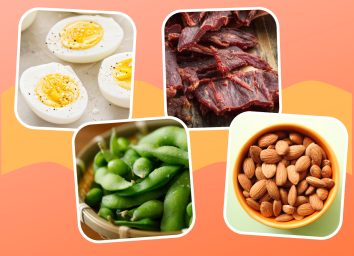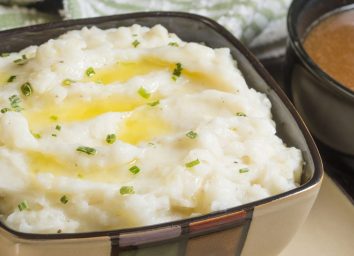8 Healthy, Low-Carb Grains For Low-Carb Dieters
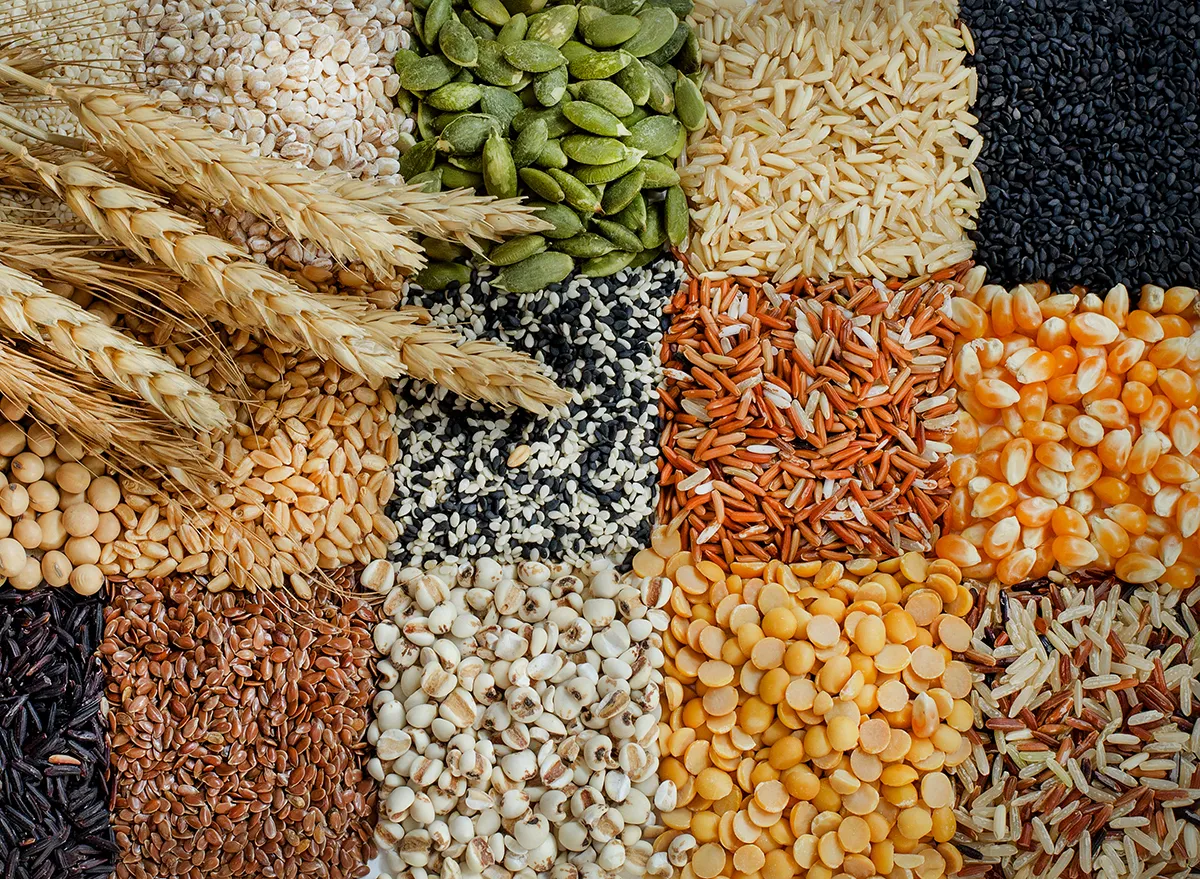
Additional reporting by Kelsey Hampton, MS, RDN, LD, CSSD
All low-carb foods, including low-carb grains, have become increasingly popular over recent decades due to the rise in low carb diets, like Atkins in the early 2000s and Keto in more recent years.
Traditionally, low carb dieters avoid fruit, starch, and grain in efforts to minimize carbs as much as possible; however, you don't have to forgo all carb-containing foods when following a low-carb diet. Grains, in particular, are a class of carbohydrate-rich foods that are worth including in your diet.
Grains do contain carbohydrates, but they also hold valuable fiber that cancels out carbohydrate grams and leaves you with fewer digestible carbs or net carbs. For example, if a food contains 30 grams of carb and 5 grams of fiber, there are actually only 25 grams of digestible carbohydrate available in that food.
Eating low-carb grains is a win-win: you keep carbs minimized while getting a good dose of fiber that serves many functions in the body, from digestive health to improving satiety.
These 8 healthiest low-carb grains are worth keeping in your low-carb diet.
All nutrition information is per ½ cup cooked.
Bulgur: 17g carb (13g net carb)
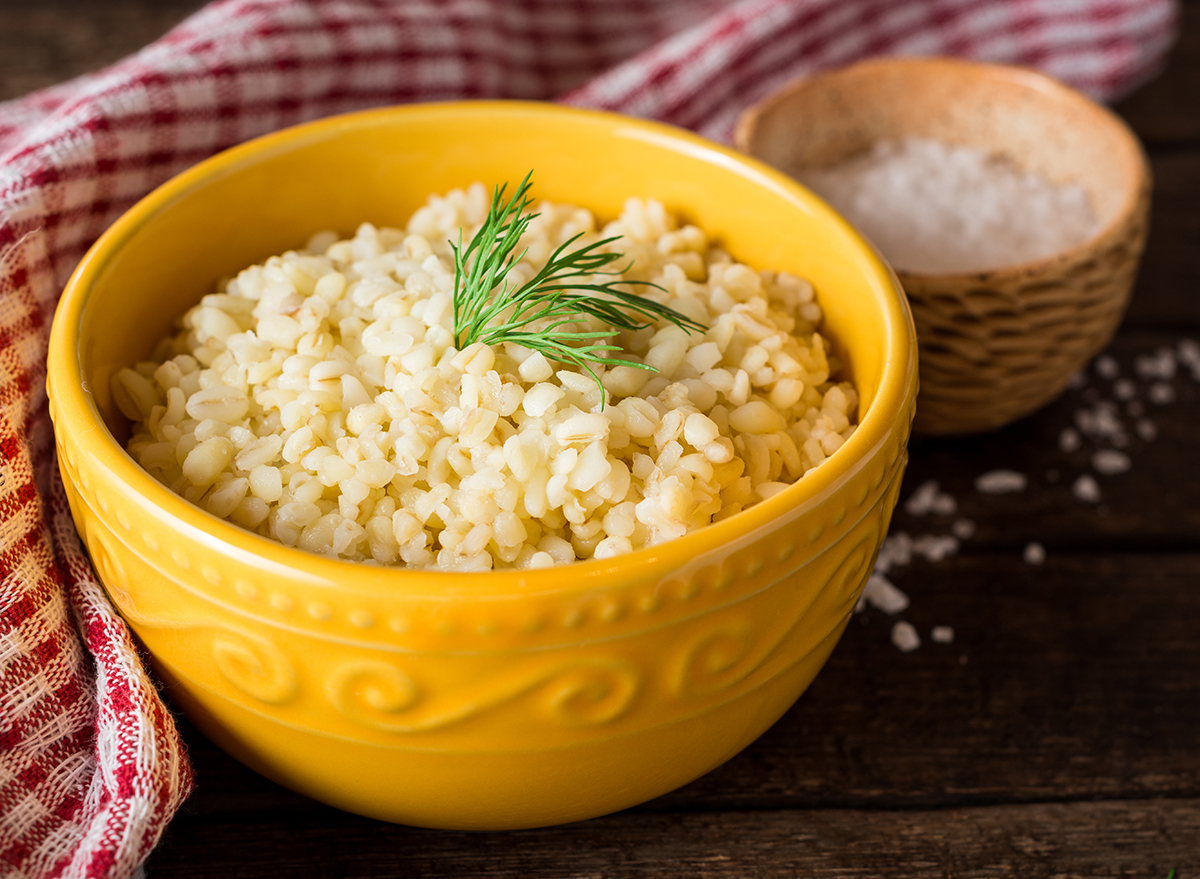
Bulgur makes the top of the list as the grain with the least amount of carb per serving. While a great option for those monitoring carbs, bulgur does contain wheat so it is not ideal for those with wheat sensitivity, allergy, or Celiac disease. Check out several gluten-free grains below!
Oatmeal: 16g carb (14g net carb)
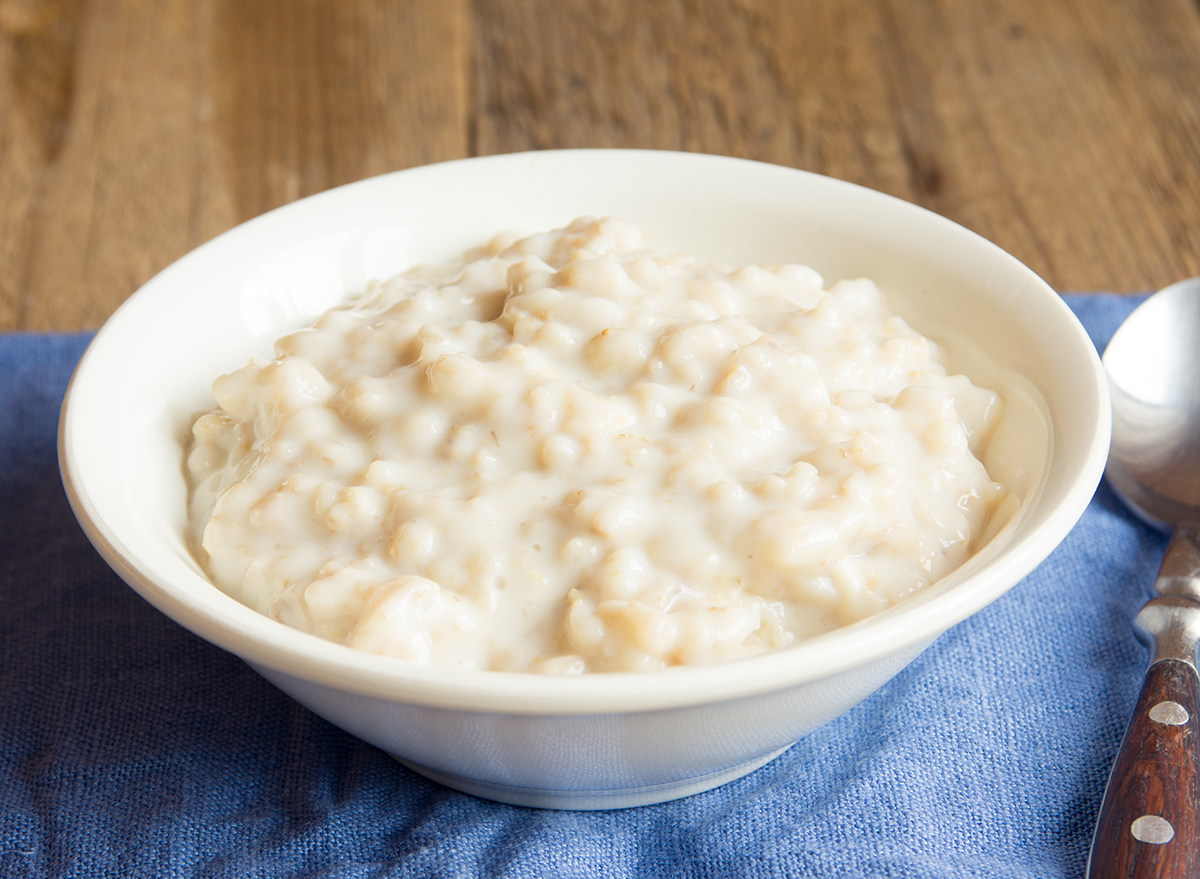
A super versatile grain that can be enjoyed sweet, savory, blended, or as overnight oats. Try topping your oats with fruit, cinnamon, and nuts if you prefer sweet, or go savory with a soft-boiled egg and green onion to top your oatmeal. You can also blend oats into your favorite homemade smoothie or smoothie bowl!
Wild Rice: 18g carb (16g net carb)
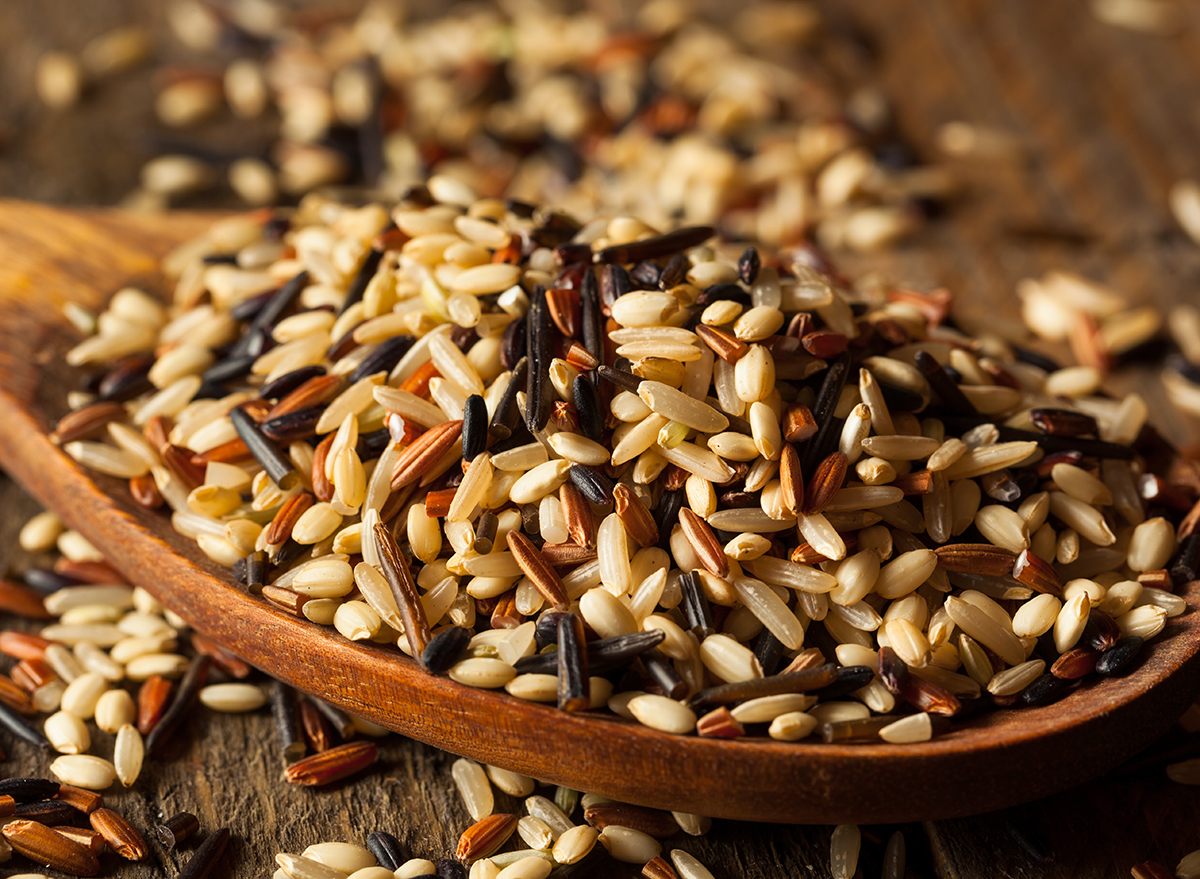
With less carb than its counterpart's white and brown rice, wild rice is also a better source of antioxidants and protein. Compared to other rice, wild rice tends to have a stronger flavor and more firm texture.
Couscous: 18g carb (17g net carb)
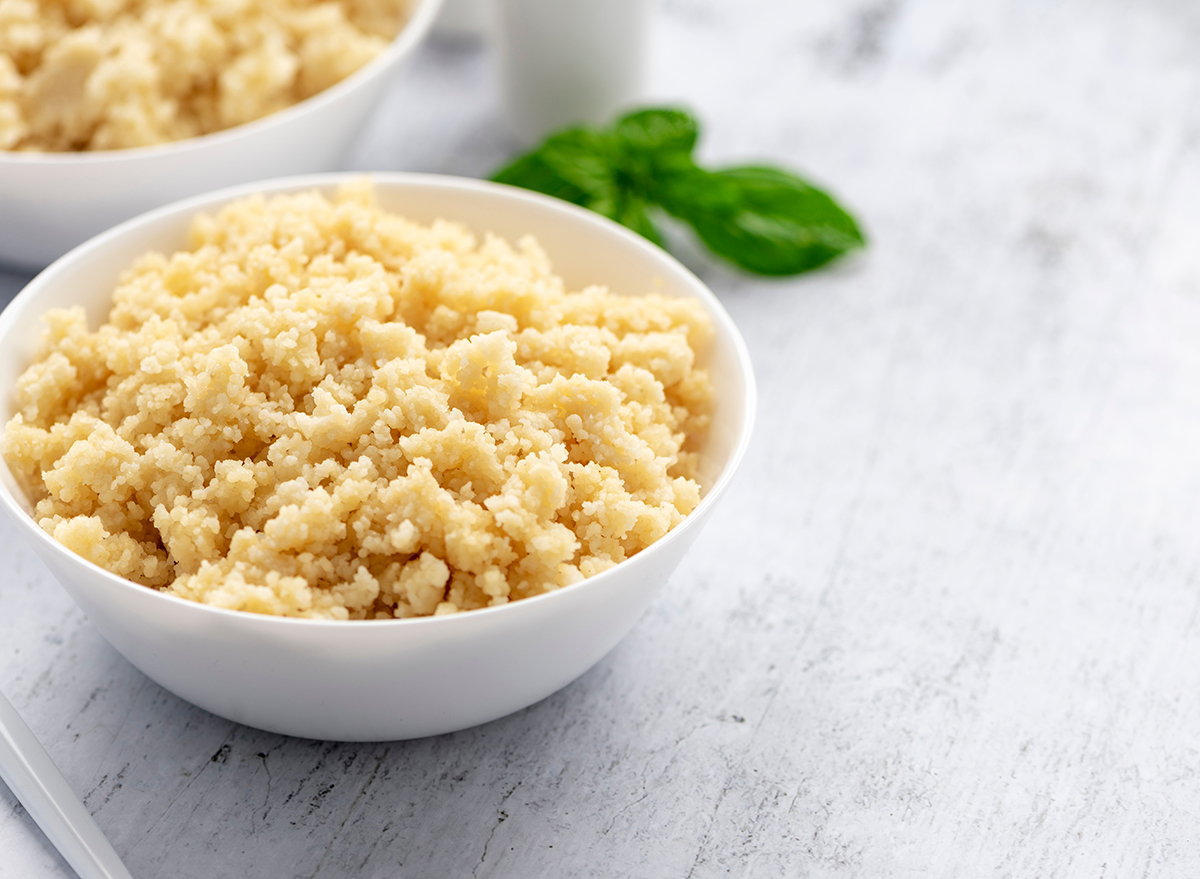
Another gluten-containing grain on our list, couscous contains selenium, an antioxidant that can protect your cells from damage. Selenium also plays a roll in thyroid health contributing to the proper functioning of this gland.
Quinoa: 20g carb (17g net carb)
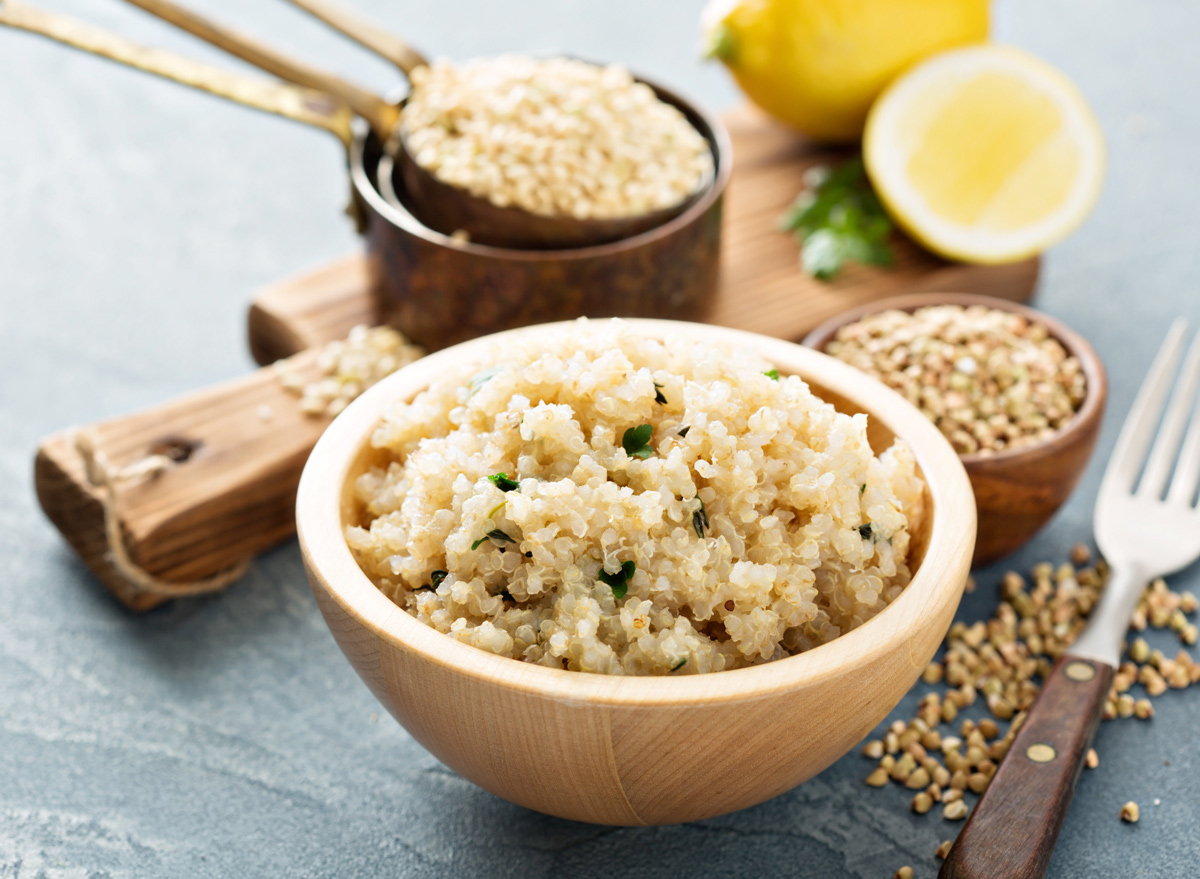
At 4 grams of protein per half cup, quinoa is the most protein-dense grain on our list. Combine it with beans or lentils for additional plant protein, use it as a side dish, top a salad or combine with banana and honey for a sweet meal or snack option.
Barley: 23 g carb (20g net carb)
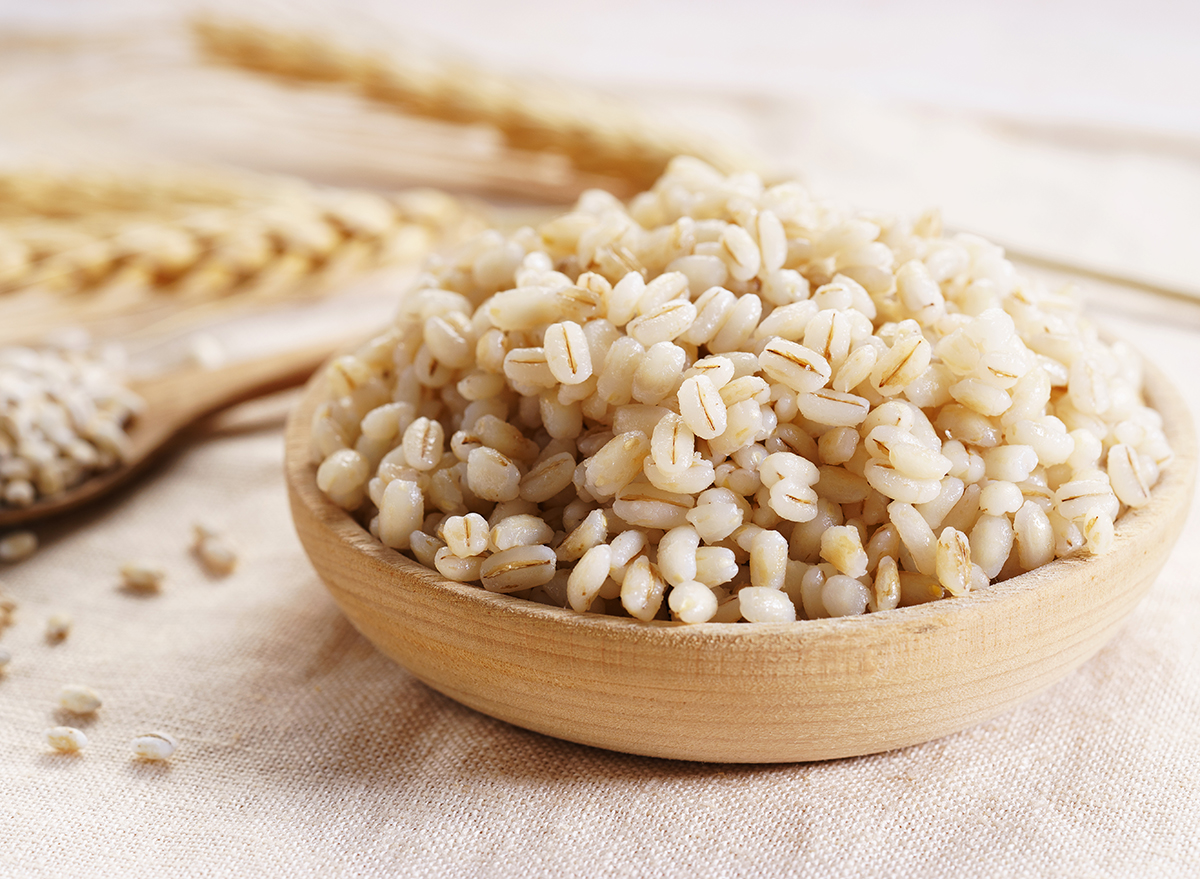
While commonly associated with the production of beer, barley is a wheat product and contains gluten. Add barley to easy dinner recipes via your favorite soup for a fiber boost or make a chilled salad by combining your favorite raw veggies, cheese and vinaigrette dressing with cooked barley.
Millet: 21g carb (20g net carb)
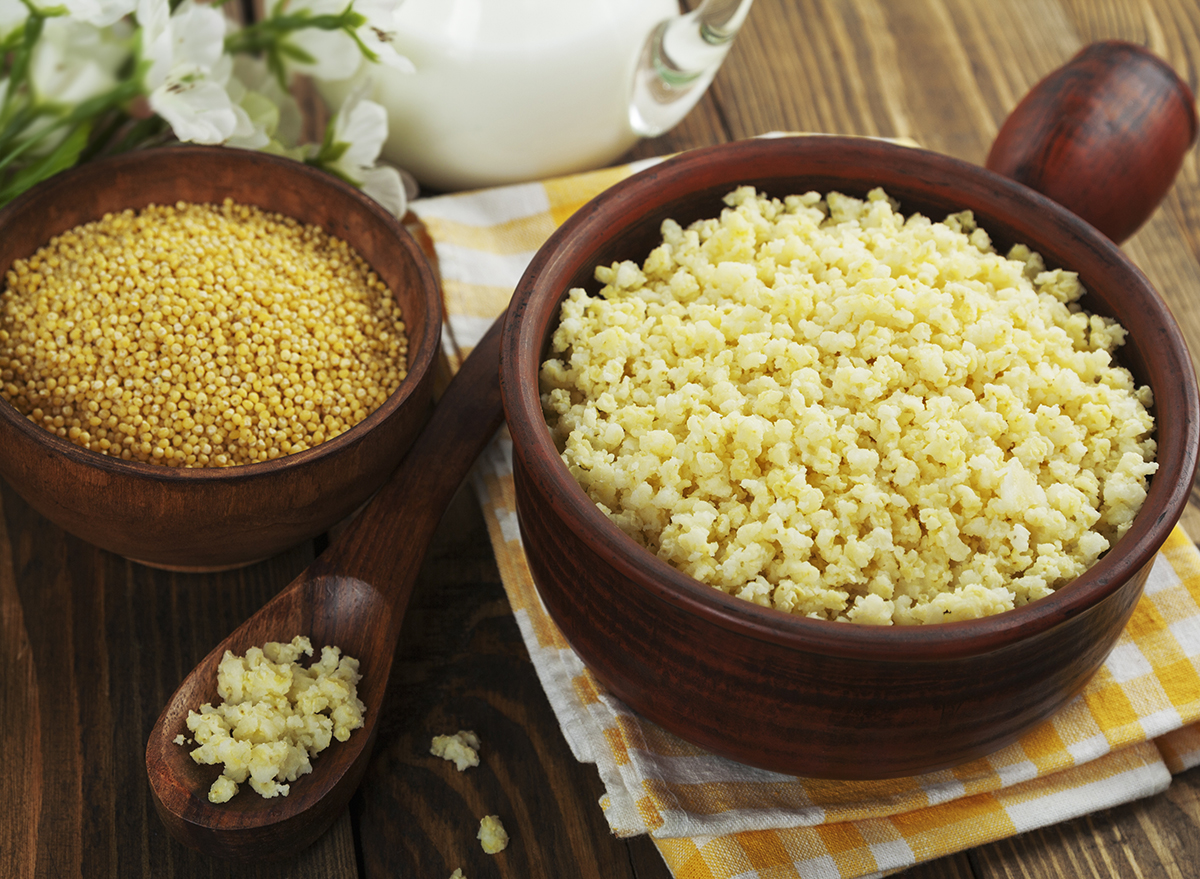
Another protein-packed grain providing 3 grams of protein per half cup, millet is also known for its magnesium content, which aids in bone health and muscle function. Additional nutrients in millet include iron and zinc.
Brown rice: 25g carb ( 23g net carb)
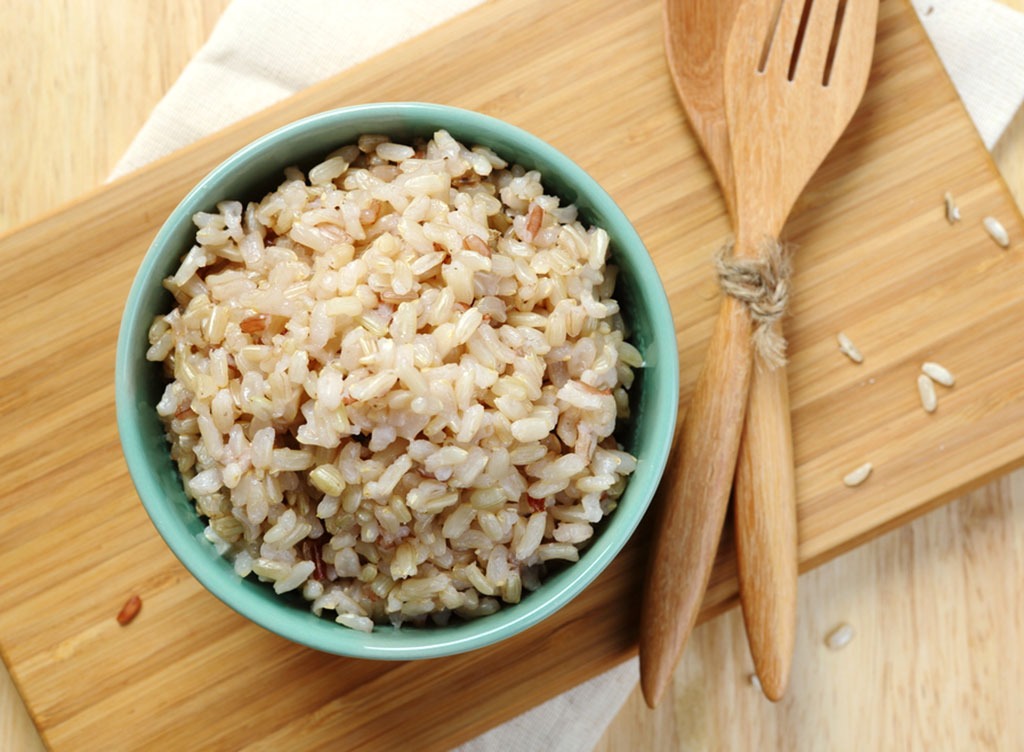
If the rest of these grains are unfamiliar, you can fall back to trusty brown rice as your go-to low-carb grain. Cook up a large batch to meal prep for the week and season to complement your entrée. Try combining with salsa for a taco bowl, mix with soy sauce for stir-fry or use as a base for your favorite curry.

